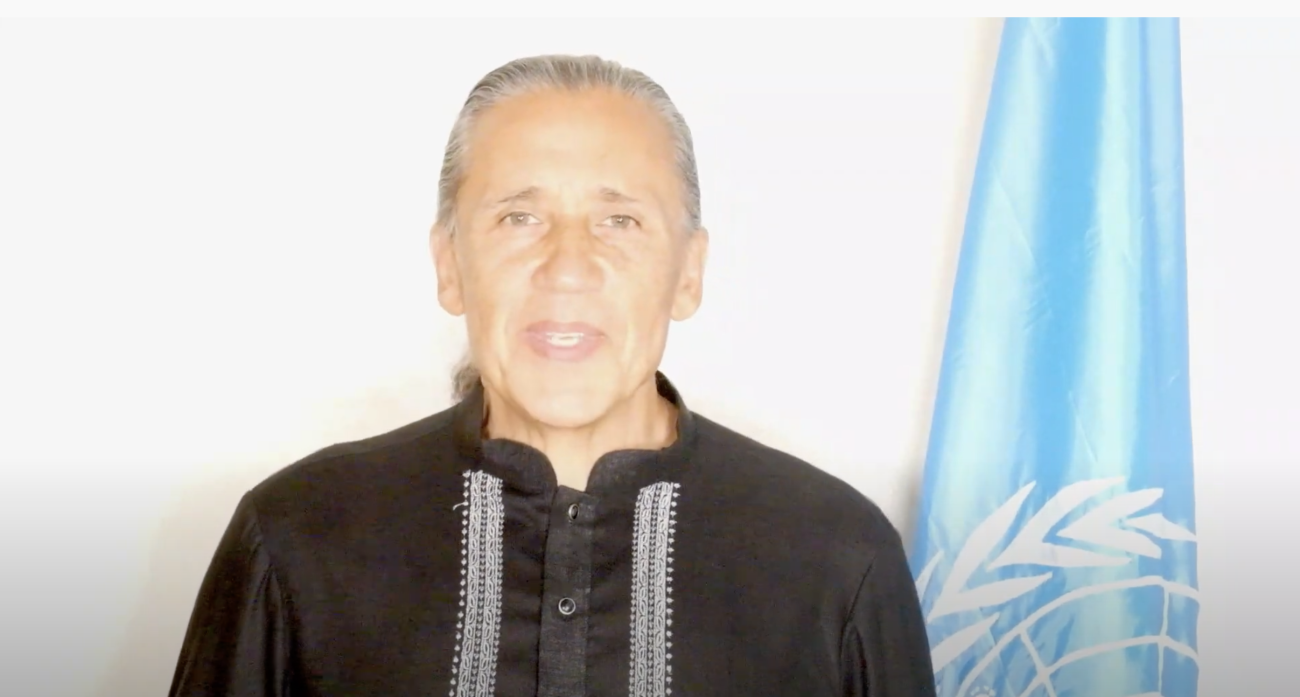Preventing terrorist use of Internet must respect human rights, says UN Philippines chief

Mr. Gustavo Gonzalez says that a solid and holistic strategy to counter and prevent violent extremism must be based on human rights
United Nations (UN) Philippines Resident Coordinator Gustavo Gonzalez called for a solid and holistic strategy to counter and prevent violent extremism at the opening on 16 June 2021 of the National level workshop for the Philippines on “Human Rights Based Approaches to Preventing and Countering Terrorist Use of the Internet” organized by the UN Office of Counter-Terrorism.
The text of his message follows:
Secretary Gregorio Honasan, Department of Information and Communications Technology
Representatives from the Embassy of Japan in the Philippines
Dear participants, partners, and friends
Let me start by congratulating the organizers of this workshop for their very timely initiative on “Human Rights Based Approaches to Preventing and Countering Terrorist Use of the Internet”.
This workshop is a collective effort with the Government of the Philippines, supported by a robust network of UN entitles: the United Nations Office of Counter Terrorism (UNOCT), the United Nations Counter-Terrorism Committee Executive Directorate (UN CTED), the Office of the High Commissioner for Human Rights (OHCHR), and the United Nations Interregional Crime and Justice Research Institute (UNICRI). We are gathering the best resources of the UN in this sector to ensure the most suitable and coordinated support to this country.
My thanks -of course- to the Government of Japan for its readiness and interest in supporting the organization of this event. I hope will enhance this collaboration with Japan in this critical area of work.
Why are we organizing this workshop? Let me share with you some background:
According to “DataReportal” -which is the online source for global digital insights’ 4.66 billion people were “active internet users” in January 2021. This is closed to 60% of the world’s population. And in the Philippines, the number goes up to 67% of the population. A lot.
People use the internet to socialize, to shop, to communicate, for work and for entertainment.
While digital technologies have provided us with new means of expression, advocacy and empowerment; these tools also spread misinformation, hate speech and violent extremism. They also dangerous tools for harassment, human rights abuses and terrorist activity.
The Member States of the United Nations have expressed many times their concerns about the use of new technologies by terrorists and, in particular, the use of the internet to spread terrorist narratives, to radicalize followers, to recruit and to raise funds to enable further terrorist attacks.
Against this backdrop, a solid and holistic strategy to counter and prevent violent extremism becomes an imperative. These strategies must ensure -of course- full respect of human rights and the rule of law.
When performing online investigations, investigators should adhere to the principles of accountability, competency, objectivity, legality and accuracy. Social media companies have an important role in the preservation of evidentiary data and should not remove content that violates their term of services.
It is equally important to have laws that determine what data to collect and how to do it, as well as internal procedures to follow to ensure accountability of this process.
The objective of this workshop is to raise awareness on these issues and to provide practitioners with additional technical tools and resources to effectively address the use of internet and technology for terrorist purposes. As mentioned before, the workshop is guided by a human rights based approaches to Preventing and Countering Terrorist Use of the Internet.
This event takes place just as we are in the final stages of the formulation of a first ever UN joint programme on human rights, which is the results of a partnership between the government of the Philippines, the National Commission on Human Rights, civil society organizations and the UN. I want to acknowledge all stakeholders involved in this process for their efforts during the last six months in building this unique joint programme. Today’s workshop is also part of such investment.
Finally, I would like to extend my deepest gratitude to our counterparts at the Department of Foreign Affairs, including the Permanent Mission of the Philippines to the UN in New York, as well as to Secretary Honasan and his team at the Philippines Department of Information and Communications Technology.
My warmest thanks also to the representatives of the various agencies of the Government of the Philippines who are participating in this workshop, as well as to the representatives from the Commission on Human Rights, for their invaluable partnership and interest in this event.
I wish you all a successful and fruitful discussion.
Thank you very much.


